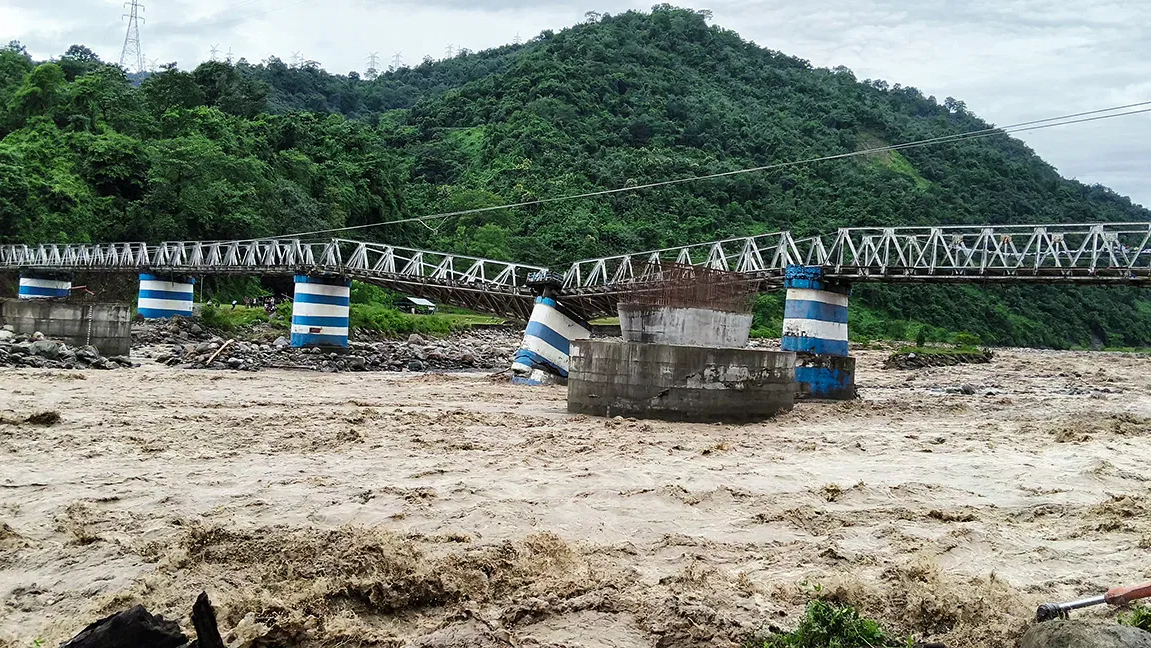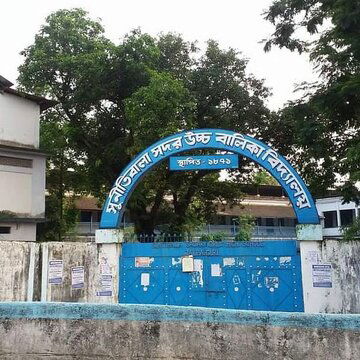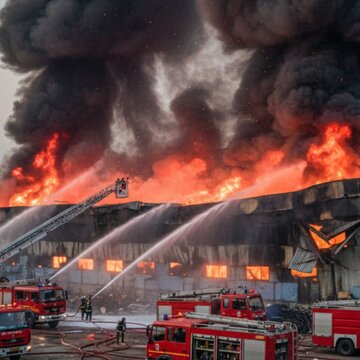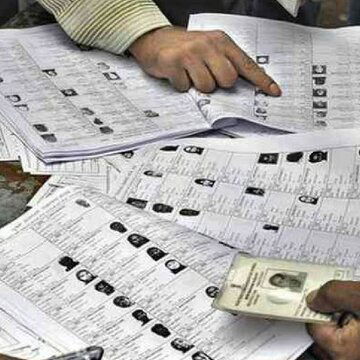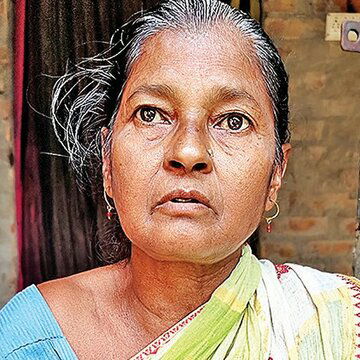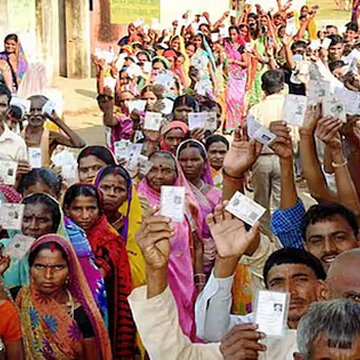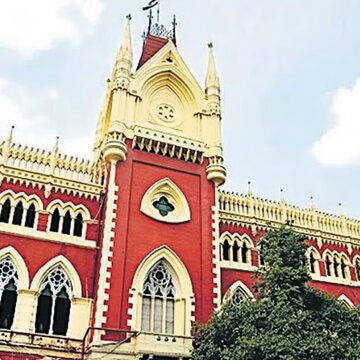We arrived at a homestay in Benda Kage village, 42 kilometres from Kalimpong, at a quarter to five on Saturday evening. The sky was overcast then. The Rishi River flows through this tranquil village nestled among the hills. Sitting in the homestay room, the only sound was that of the rain-swollen river's water cascading down from the mountains. Honestly, this is the ambience tourists seek when venturing into the hills.
But a light drizzle began around 6:30-7:00 PM. When I returned to the room around 7:30 after a brief stroll near the river, my umbrella was barely wet. We had our dinner at 10:30 PM. The rainfall was still insignificant at that point. Discussions with the homestay owners revolved around the whereabouts of the meteorological department's warnings. Based on their assurances, cancelling a North Bengal hill getaway during the Puja holidays would have been a considerable financial loss.
During this conversation, I somehow fell asleep. When we went to bed, the fan was still on in the room. The murmur of the river and the gentle sound of light rain outside might have been heard.
However, I was suddenly woken up by the sudden roar of thunder and flashes of lightning. I checked my mobile phone, it was 1:30 AM. The ferocity of the rain, the rumble of the sky, and the crash of thunder had coalesced into a terrifying cacophony. The power had gone out. Pitch darkness enveloped everything. The only light came from lightning flashes through the window panes. The thunderous booms and lightning strikes were so intense that I had to cover my ears. As the clock ticked from 2:00 to 2:30, then 3:00, and 3:30, I realised nature was unleashing a deluge outside.
Never before had I experienced such horrifying thunder and lightning; it felt as if someone was detonating a thousand firecrackers simultaneously. Despite sitting up and lying down on the bed once or twice, my mind kept drifting to the tragedies in Uttarakhand's Dharchula, Dehradun, Chamoli, Himachal's Mandi, Kinnaur, Jammu and Kashmir's Ramban, and the cloudburst on the second day of Durga Puja in Kolkata.
I opened the room door again, trying to gauge the situation outside. The intensity of the rain and the thunder, and the lightning occasionally woke my sleeping daughter, who clung to us in fear. At that moment, I thought perhaps it would have been better to heed the meteorological department's advice and not venture into the hills during the Puja holidays. The thought even crossed my mind whether we would survive to return from this small village nestled in the hills.
Now, around 3:45 AM, a WhatsApp message from a former colleague, now a weather reporter for a private TV channel, pinged on my phone. 'Brother, it's already poured 200-300 millimetres. Wait a bit longer!' Gradually, the intensity of the rain, the thunder and the lightning began to subside. Around 5 AM, as the pitch-black darkness outside gave way to some light, I opened the door to see water everywhere. The Rishi River, flowing past the homestay, was now raging.
The river that had seemed so gentle, calm, and harmless just hours ago now became a terrifying visage that words cannot adequately describe without witnessing it firsthand. The muddy water rushing down from the mountains crashed against the rocks with even greater force. However, the silver lining was that Sunday didn't bring much rain. By evening, the moon had even risen in the sky over Benda Kage village near the Sikkim border. The clouds had cleared.
Now, how long will this respite last? I do not know!


